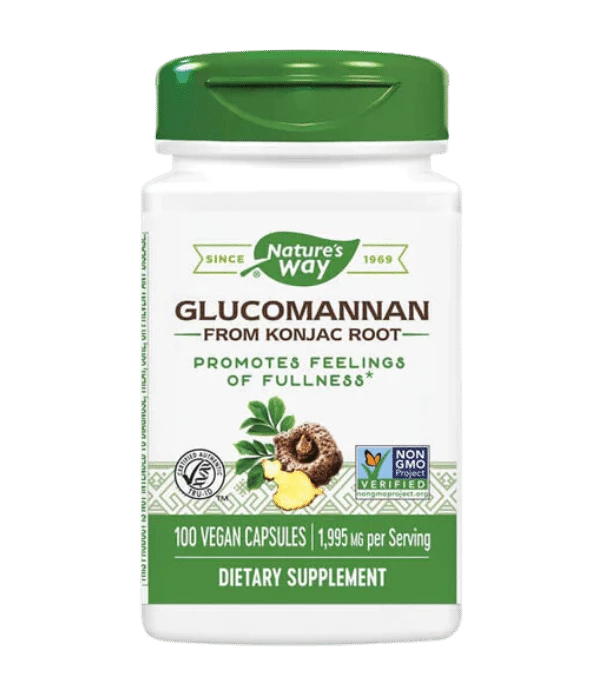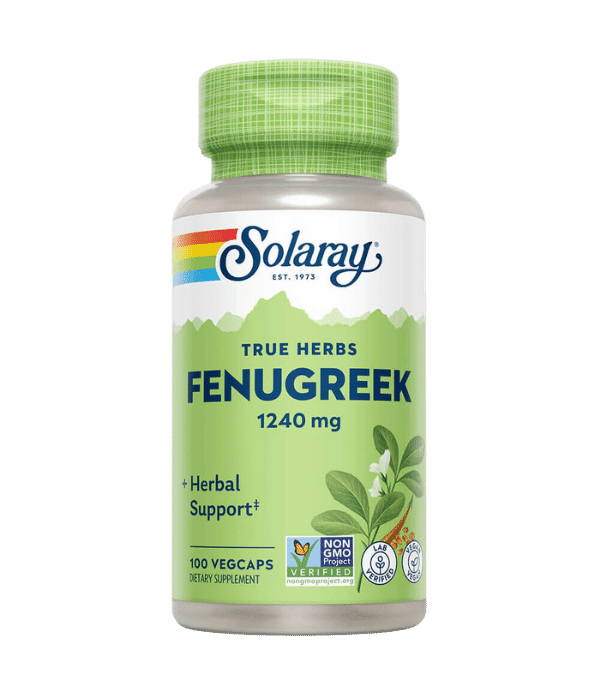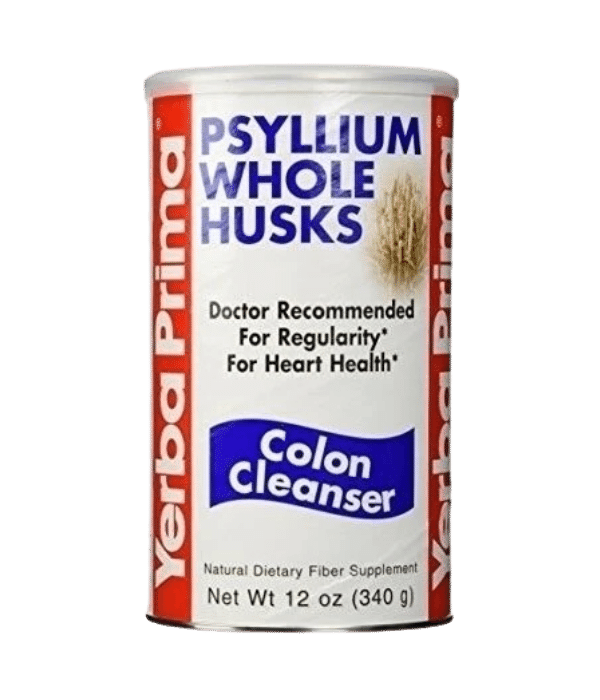Try our favorite, clean protein powder: See our top pick →
Try our favorite, clean protein powder: See our top pick →
This post contains links through which we may earn a small commission should you make a purchase from a brand. This in no way affects our ability to objectively critique the products and brands we review.
Evidence Based Research To fulfill our commitment to bringing our audience accurate and insightful content, our expert writers and medical reviewers rely on carefully curated research.
Read Our Editorial Policy
Right now, there’s a colony of bacteria in your gut outnumbering the population of Earth roughly 12,500 to 1. And it’s not all good bacteria. We’ll let that sit for a second.
Research ten more seconds into gut health and you’ll probably see plenty of information about prebiotics and probiotics—but what’s the difference?
Where probiotics are live bacterial cultures that directly supplement and/or replace the good bacteria in your gut, prebiotics are sources of fiber that “feed” them so they can boost metabolism, help the immune system, and perform their many other functions more efficiently.
In this list of the 9 best prebiotics supplements, we’ll show you how to differentiate between products to find the best supplement for you.
First, we have to give it up to Nature’s Way Glucomannan Root for delivering one of nature’s most versatile prebiotics with no artificial ingredients or fillers to worry about.
Best Overall  | Best Value | High-Fiber | |
|---|---|---|---|
| Product | Nature’s Way | Solaray | Yerba |
| Key Points | Capsule form; highly versatile prebiotic supplement that may reduce cholesterol, manage blood sugar, and more; promotes a feeling of fullness; non-GMO project verified | Capsule form; fenugreek carries anti-carcinogenic, antioxidant, and other properties; lab-tested non-GMO supplement | Powder form; 4.5 grams of soluble and insoluble dietary fiber per serving; potent colon cleanser; no added sugars, artificial flavors, binders, or fillers |
| Price | $20.49 for 33 servings ($0.62/svg) Shop Now | $11.49 for 50 servings ($0.23/svg) Shop Now | $18.25 for 68 servings ($0.27/svg) Shop Now |
Best for: Anyone looking for natural prebiotics that can promote fullness, manage blood sugar, promote beneficial gut bacteria, and more in addition to all the health benefits of a prebiotic (digestive health, metabolism, etc.).
Deriving its name from its constituent ingredients—the simple sugars mannose and glucose—glucomannan is an increasingly popular prebiotic with particularly promising applications for skin health.
This konjac-based fiber is no one trick pony, though—this study from Capital Medical University in China shows that glucomannan can lower total cholesterol as well as blood glucose levels.
And we can personally attest to the filling effect, having tried konjac-based Miracle Noodle products.
Nature’s Way Glucomannan Root is our top pick for this prebiotic because of their proven track record in providing responsibly sourced, high-quality supplements across many categories.
Especially if you’re new to glucomannan root and want a clear assessment of its effectiveness, the one-ingredient Nature’s Way Glucomannan Root (not counting the capsule) is an excellent place to start.
Best for: Those looking for a high-quality and affordable prebiotic supplement with additional benefits for immune system function, liver health, and much more.
Our top pick for value and a very close second for overall best is Solaray Fenugreek Seed, a millennia-old source of prebiotic fiber delivered by one of our most trusted brands.
In addition to supporting the healthy development of good bacteria in your gut microbiome, Fenugreek has been suggested by researchers to also carry antioxidant, anti-carcinogenic, antimicrobial, and hepatoprotective (liver-protecting) effects, among others that boost immune function and various key functions within the body.
Solaray consistently keeps their sourcing, manufacturing, and testing standards high, which is no exception with this lab-verified, non-GMO fenugreek supplement.
There are no other (main) ingredients, and you’ll have to take two capsules for a serving, but if you’re looking for a well-vetted prebiotic supplement to improve gut health for a very competitive price, Solaray Fenugreek Seed is our recommendation.
Best for: Anyone looking to increase their fiber intake for regular bowel movements, overall health, heart benefits, etc.
Where many prebiotics (including some on this list) don’t actually climb much higher than 2 total grams of fiber per serving, Yerba Prima Psyllium Whole Husks hits just under 20% of your daily value with 4.5 total grams of fiber (3.5 g soluble, 1 g insoluble).
It certainly isn’t the newest or fanciest option in town, but psyllium husks are especially useful for relieving constipation by adding water to stool, all while helping to grow beneficial gut bacteria.
Psyllium is also shown to not only moderate cholesterol levels and support heart health, but to rid the body’s tissues of toxins so they aren’t recirculated into the bloodstream.
Like their other products, Yerba Prima Psyllium Husks is made with no added sugars, artificial flavors, binders, or fillers, which is why we recommend it to anyone looking to support the good gut bacteria and promote regular bowel movements.
Best for: Anyone looking for a simple, clean, but savvily formulated prebiotic supplement they can take with them.
Blending three types of plant-based prebiotic fibers—XOS (xylooligosachharides), GOS (galacto-oligosaccharides), and inulin (phew)—WiseHuman Prebiotic Fiber Boost is made to leverage as much prebiotic power as possible out of 3 grams of fiber per serving.
Developed by gut health specialist Dr. Jeremy Burton, this three-ingredient blend (no other ingredients, by the way) has been shown by the above studies to optimize colonic pH levels, stimulate the immune system, enhance digestion and metabolism, and much more.
WiseHuman Prebiotic Fiber is tested for allergens and heavy metals, and contains zero preservatives, sweeteners, or artificial flavors.
If you’re looking for a potent prebiotic mix with 3 grams of fiber that you can take on the go, WiseHuman gets our vote.
Best for: Anyone looking for a highly reliable and affordable prebiotic fiber for digestive health and more that they can take on the go.
It may not be packing near as much fiber per serving as Yerba Prima, but NOW Psyllium Caps are made with organic psyllium in a GMP-certified facility.
Having interviewed leadership at NOW Foods personally for our comprehensive brand review, we can attest to the high standards of quality they stick to, often resulting in vendors being turned down for not making the cut.
We also like NOW Psyllium Caps for the ability to take them on the go, and of course, because they don’t have any adulterants whatsoever in the ingredient list (preservatives, sweeteners, etc.).
If you’re looking for a vegetarian, non-GMO, and organic source of fiber that you can take in five seconds and move on with it, NOW Psyllium Husk caps are always a solid (get it?) choice.
Another time-tested herb that goes back centuries and across cultures, dandelion root combines the prebiotic fiber inulin with diuretic (increasing urination) properties to offer several unique benefits.
Dandelion greens have been suggested by researchers to have anti-rheumatic, anti-carcinogenic, laxative, hypoglycemic, and as mentioned, diuretic effects that can lower blood pressure.
This is in addition to all the benefits of the prebiotic fiber inulin, which also regulates blood glucose levels, in addition to helping with weight loss, strengthening the gut microbiome, and much more.
Nature’s Way Dandelion Root is a gluten-free, vegan, and non-GMO supplement providing just under 1.6 grams of dandelion root extract per serving.
We don’t love the three-capsule serving, but if you’ve set your sights on dandelion root for the many perks it offers beyond that of a simple prebiotic, Nature’s Way Dandelion Root is our top recommendation for its quality and affordability.
Best for: Those looking for the well-rounded benefits of psyllium husk fiber in a convenient, vegetarian format.
Vegetarians out there, we feel your pain.
You find this awesome plant-based supplement, getting more excited as you scroll through the description or read the label, only to be cut short at the three yard line—the capsule ingredients.
Never fear, because Yerba Prima Psyllium Husk Veg Caps are indeed fully vegetarian, using vegetable cellulose instead of animal-derived gelatin.
As mentioned above, you’ll still get all the standard benefits of fiber-rich psyllium husks, including gut health improvements, heart health, constipation relief, and more.
We recommend Yerba Prima Psyllium Husk Veg Caps for any vegetarian looking for a simple, yet well-rounded source of prebiotic fiber.
Best for: People looking for a more complex and powerful fiber supplement specifically for detox and/or constipation relief.
While we don’t blame most fiber supplements for keeping it simple, Health Plus Super Colon Cleanse provides a much needed departure from the one- and two-ingredient formulations to provide powerful constipation relief.
The major players on this ingredient list are psyllium husk powder (5g/serving), senna leaf powder (3g/serving), and a proprietary blend (2g/serving total) featuring fennel seed, papaya leaf, peppermint leaf, buckthorn bark, celery seed, barberry root, rose hips, and acidophilus.
To avoid crass levels of detail, let’s just say that if Health Plus Super Colon Cleanse doesn’t give you relief, we doubt that most other fiber supplements will.
We also appreciate how this supplement stands out nutritionally, offering considerably more iron, calcium, vitamin A, and other nutrients than most others, but you’ll find it harder to take on the go than capsules.
Overall, if you’re searching for a powerful prebiotic supplement that can provide fast results for constipation relief, Health Plus Super Colon Cleanse is our top recommendation.
Best for: Those looking for a super clean, organic, and vegan prebiotic blend that provides plenty of fiber per serving.
Loaded with inulin and wellness-promoting phytochemicals, Hyperbiotics Prebiotic Powder is a head above your average prebiotic supplement on a nutritional level.
The combination of acacia fiber, Jerusalem artichoke, and green banana flour expand the potential health benefits of this powder mix to include heart and cholesterol benefits, blood glucose management, and much more.
Not to mention, Hyperbiotics Prebiotic Powder is among the more fiber-rich natural prebiotics we’ve reviewed, providing 5 grams of soluble dietary fiber per serving.
If you’re looking for a leveled-up prebiotic that keeps it organic, Hyperbiotics Prebiotic Powder is a solid choice.
While it’s difficult for circumstantial reasons (different people have different gut health needs), prebiotic foods include dandelion greens, apples, bananas, chicory root, garlic, psyllium husk, oats, and more. All of these foods are represented in supplement form as well, like Yerba Prima Psyllium Husk and Hyperbiotics Prebiotic Powder (Jerusalem artichokes).
In the same way you wouldn’t choose between buying a new car and filling it up with gas, consuming prebiotic foods and probiotic foods or supplements should be seen as a synergistic effort to create and maintain a healthy gut microbiome. Probiotics keep the gut microbiome well-populated with benevolent bacteria, where prebiotics help them to survive and perform at their best.
Considering most healthy diets contain prebiotic foods already, there’s no reason (other than low-quality supplements with added preservatives, fillers, etc.) that taking them every day should pose a health concern in the average person. If you’re curious about the effects of prebiotic foods or supplements on any pre-existing conditions you have or medications you’re taking, it’s always a good idea to consult with a healthcare professional. As always, monitor your digestive health and watch for symptoms to closely gauge the effects of any prebiotic supplements you’re taking.
Because prebiotic foods and supplements support so many vital roles in the body, including even serotonin production, the list of symptoms related to low prebiotic intake is pretty broad, and can include:
– Indigestion, constipation, diarrhea, and other digestive tract issues
– Mood disturbances, anxiety, depression, etc.
– Change in metabolism
– Change in skin health
– Immune system disturbances—getting sick frequently
– Fatigue
Subscribe now and never miss anything about the topics important to you and your health.